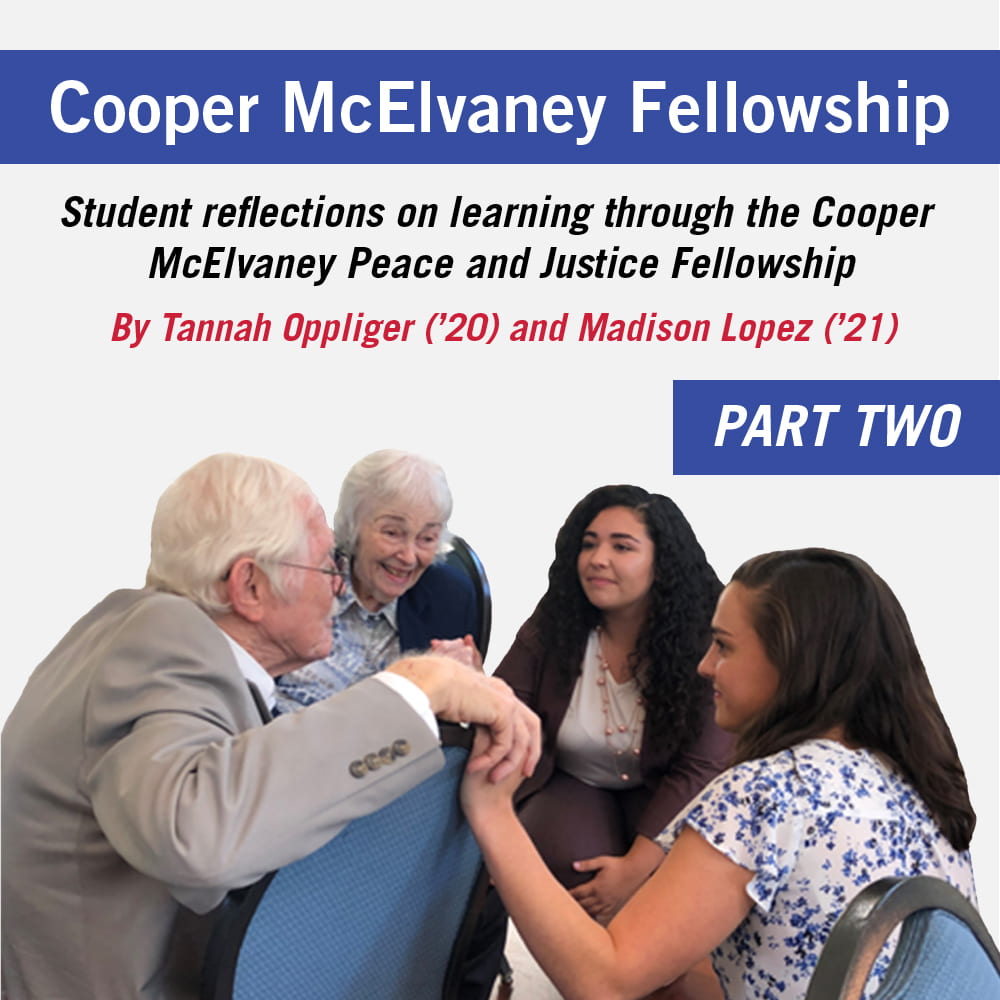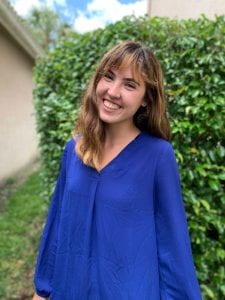As I stepped off the plane in Washington D.C in the summer of 2019, I was filled with excitement and humility at the thought of how far I was able to come because of the Cooper McElvaney Peace and Justice Fellowship. Little did I know, arriving in D.C was only the beginning of the enormous impact on my life I would experience from my time as a Peace and Justice fellow. Just a few months prior to my interning with the Combatting Human Trafficking Team at the McCain Institute in Washington D.C, I was unsure of whether I would be able to afford to take such an opportunity. The Cooper McElvaney Peace and Justice Fellowship made my internship and so much more possible. As I worked and met with leaders in the field of anti-human trafficking work, I engaged in research that would then lead to the crafting of recommendations on how the state of Texas could strengthen its fight against human trafficking through a greater focus on primary prevention education.
From gaining valuable research experience and networking opportunities to recognizing how my passions could blend with my career, I walked away from this research fellowship with a unique perspective on the future of my educational and professional goals.
First, I quickly fell in love with both the type of work I engaged in at the McCain Institute and the experience of conducting my own research. Gaining real-world experience working on the issue of human trafficking solidified my goal of working on social justice issues from a policy and research perspective. I was also able to engage in conversations with former U.S ambassadors, attorneys, special advisors, the CEO of the largest, research-based anti-trafficking organization in the United States, and more. Each of these conversations was significant in opening my eyes to the diversity in educational and career paths that could lead to fulfilling and meaningful work for me. Each of their backgrounds were unique.
Although it may seem a simple fact, it was so comforting for a college intern like me, exploring the world of professional opportunities, to simply hear that there is not just one “right” path that will lead to success. I don’t have to worry about one moment of failure when the path to achieving my goals can be filled with twists and turns or ups and downs, and still lead to amazing outcomes—just like those of the incredible people I got to learn from through this entire experience.
Madison Lopez (‘21) is from Lewisville, Texas. She is majoring in Political Science and Human Rights and her residential commons affiliation is Crum Commons.
For more information about the Office of the Chaplain and Religious Life, please visit www.smu.edu/chaplain.









